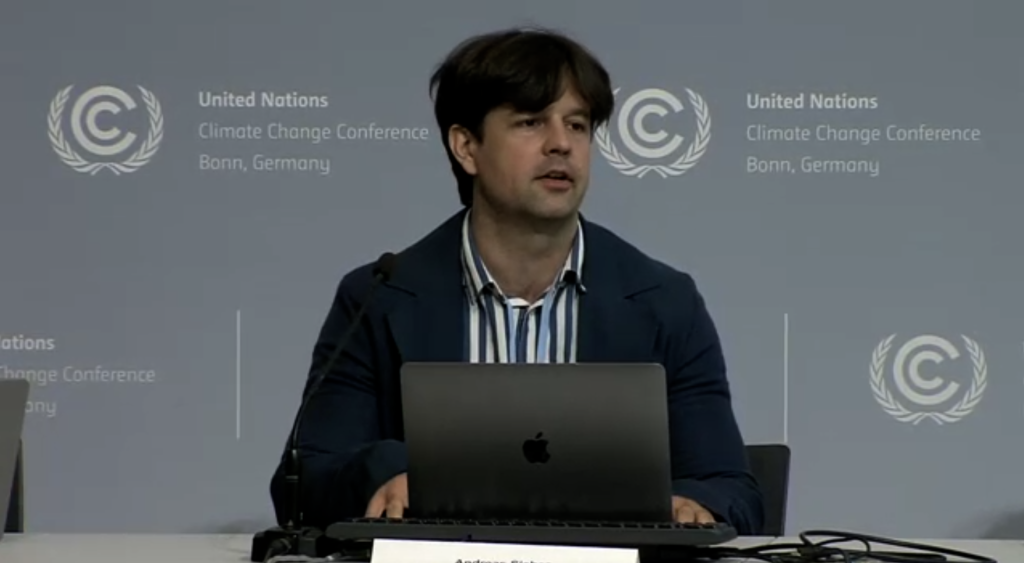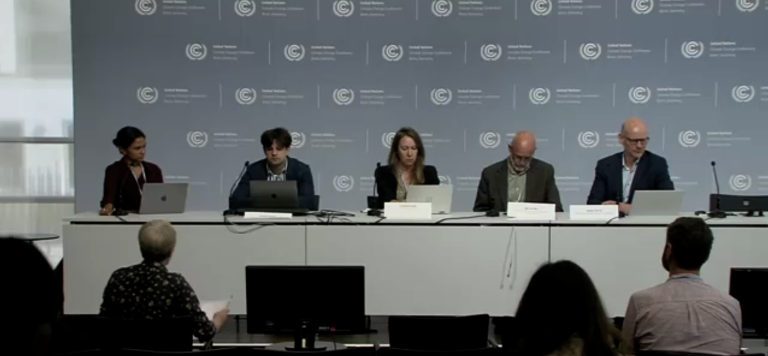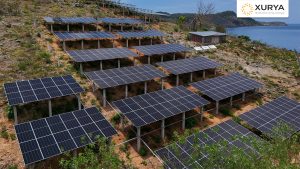Jakarta – Climate policy experts have raised alarms over the sluggish pace and insufficient ambition of new national climate plans, or Nationally Determined Contributions (NDCs), on Tuesday, June 17, at the sidelines of the UNFCCC SB62 climate meetings in Bonn. With a September deadline looming for inclusion in the upcoming NDC Synthesis Report—critical for setting the tone at COP30 in Belém—campaigners stressed that major emitters are falling behind.
Andreas Sieber, Associate Director of Policy and Campaigns of 350.org, said that while there are promising shifts in renewable energy commitments, most NDCs still fail to address the core driver of the climate crisis: fossil fuels. “They are roughly responsible for 75% of it. They are the overheating and shine of our planet,” Sieber noted, adding that fossil fuel exporters like the US, Canada, Norway, and Australia—potential COP31 hosts—have not shown leadership in phasing them out in their updated NDCs.
From the 23 new NDCs submitted to date—out of 149 countries expected—19 include quantitative renewable energy targets, a significant improvement from previous cycles. Eight of those set targets for over 75% renewable electricity. “Despite there being a shortfall, we can really acknowledge that there’s a quality shift and that’s good news,” Sieber said. However, he said the overall ambition gap remains large, and the biggest emitters are still missing.

Cosima Cassel, Programme Lead at E3G, emphasised the geopolitical risks of inaction. She said that in this critical year, “only five G20 members have submitted their updated NDCs, while nearly 80% of global emissions remain uncovered in current plans. The EU, China, and other major players must act urgently.”
Cassel pointed out that while some countries have made progress—such as the UK phasing out coal—others are regressing. “Japan is backtracking. Some countries have also reversed bans on fossil fuel exploration: New Zealand and the US,” she said.
The EU’s pending NDC submission was singled out as pivotal for catalysing momentum. Without a submission by the September deadline, its plan will be excluded from the synthesis report. “The EU cannot do it alone, and it needs Global momentum to protect its industries and people, and this strong signal, as the EU is a self-proclaimed climate leader,” Cassel said, urging Denmark to convene an emergency Environmental Council ahead of COP30.
Speakers urged countries to treat NDCs not just as technical documents, but as investment blueprints that signal long-term economic security and climate resilience. “This is a test of leadership—the climate challenge affects everyone and we need to reset the tone and act urgently and close the gap to 1.5 and see that within the NDCs,” Cassel concluded. (nsh)
Banner photo: Climate experts press conference at the side of the climate talks in Bonn, Germany, 17 June 2025 (UNFCCC webcast screenshot)















